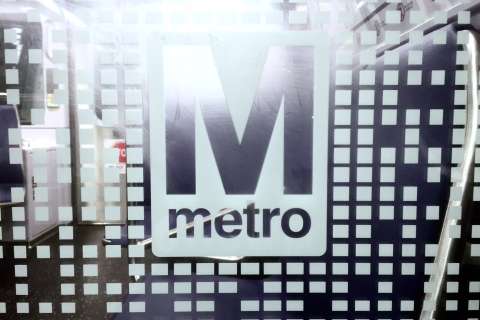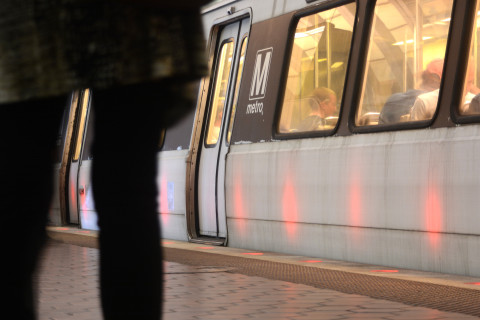WASHINGTON — After the Federal Transit Administration pulled funding from all D.C., Maryland and Virginia transit systems Friday over the region’s delay in setting up a long-promised Metro Safety Commission, Metro Board Chair Jack Evans said he was “annoyed” at what he described as an “ill-advised act, maybe even irresponsible.”
“The idea of withholding funds from Metro, from our capital dollars, when we are finally, really in a position to spend dollars and make the needed repairs to Metro is foolhardy. It’s very foolhardy and dangerous,” Evans said.
The region promised after the deadly 2009 Red Line crash that it would establish a Metro Safety Commission that actually had power to enforce safety rules at Metro. The region never acted, and more problems were exposed with Metro safety following Carol Glover’s death on a smoke-filled Yellow Line train two years ago. That led to the FTA taking over temporary safety oversight from the Tri-State Oversight Committee.
Last year, then-Transportation Secretary Anthony Foxx set a Feb. 9, 2017 deadline for the states and the District to finally have the new commission up and running.
“The date set by Sec. Foxx awhile back was unrealistic … everybody knew it was unrealistic,” Evans said.
That was because of the schedules of the Maryland and Virginia legislatures, which are now in the process of approving the legislation. Virginia lawmakers are scheduled to adjourn in two weeks, while Maryland’s General Assembly is in session for about two more months.
Even after all three jurisdictions pass the identical legislation, Evans said it could be months before the requirements are met to get the money flowing again. Congress must approve the interstate agreement, and the Federal Transit Administration said it will only certify that the Metro Safety Commission meets oversight requirements when the region can show the commission has adequate staffing, training and authority to do its job.
There is also a required “transitional handoff” period from the FTA, which currently has temporary safety oversight for the Metro system. The FTA has said it hopes the new safety commission will hire a number of the people who are doing Metro inspections or other oversight for the FTA today, which could speed up the staffing process.
Evans had hoped the Trump administration would extend the deadline.
“It’s foolhardy. It’s irresponsible, and I hope this does not bespeak what I’m dealing with in the future because Metro is making enormous progress,” he said.
“The blame for most of this goes to Sec. Foxx who set up an unrealistic deadline, knew it was unrealistic, and yet persisted in not changing it,” Evans said.
The region could have agreed on and passed the legislation any time after an initial white paper in 2010, or even taken up the issue in special sessions, but apparently did not feel the urgency to do so until last year.
“There was no need to do it this way,” Evans said.
Evans said there should not be any short-term impacts at Metro from what he hopes is a short-term hiccup, but expressed some concern about how long it might take to have the Metro Safety Commission up and running.
“You have to put this whole thing in place and that could take months, so it’s not something that’s going to come soon, and I hope we get it done by the end of the fiscal year which is June 30 or it rolls into the next fiscal year, so yeah, it has the potential of being problematic down the road,” he said.
“Metro is always strapped for cash. You saw that our revenues are down $125 million, $60 million in the first six months, projected to be down $125 million (for the fiscal year), now we have cost savings that will decrease that — that’s on the operating side — and to add to those problems is not something that is helpful,” he added.
D.C. Mayor Muriel Bowser signed the District’s version of the Metro Safety Commission bill Friday, shortly after the FTA announced the temporary withholding of funds.







